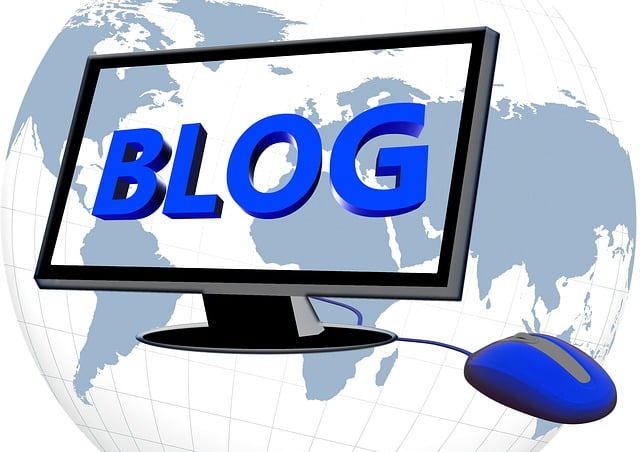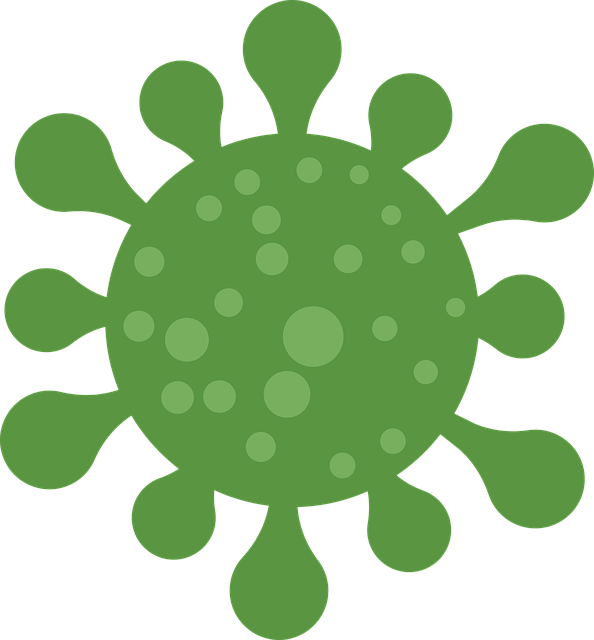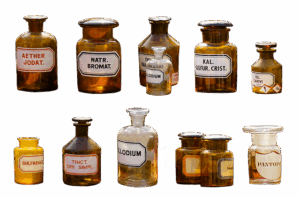Effective communication is paramount in public health, especially when translating UK reports, documents, and guidelines into various languages. Specialized translation services are crucial for ensuring accurate information reaches diverse communities, promoting inclusivity, and bridging language gaps. These services employ medically trained translators with cultural sensitivity to convey complex concepts clearly. Strict Quality Assurance measures and advanced technologies, like AI-powered machine translation, ensure high-quality translations that maintain the integrity of critical public health messages. Case studies during the COVID-19 pandemic highlight the significant impact of these services in improving community engagement and access to care. Technological advancements promise a brighter future for healthcare translation, catering to the global demand for accessible healthcare information.
Need expert translation for UK public health reports? Accurate translation is paramount for effective communication of critical health information to a global audience. This article delves into the essential aspects of translating technical reports, highlighting challenges and solutions. We explore the role of professional interpreters and translators in healthcare, cultural sensitivity, quality assurance, advancing technologies, successful case studies, cost-effective strategies, and future trends in medical language services tailored for UK public health reports.
- Understanding the Importance of Accurate Translation in Public Health
- Challenges in Translating Technical Reports for a Global Audience
- The Role of Professional Interpreters and Translators in Healthcare
- Ensuring Cultural Sensitivity in Medical Translation Services
- Quality Assurance Processes for Public Health Documents
- Technologies Advancing Translation for UK Public Health Reports
- Case Studies: Successful Translations in the Healthcare Sector
- Cost-Effective Solutions for High-Volume Report Translation
- Future Trends and Innovations in Medical Language Services
Understanding the Importance of Accurate Translation in Public Health

In the realm of public health, clear and precise communication is paramount to ensuring effective strategies and interventions. When it comes to reports, documents, and guidelines that shape healthcare policies in the UK, accurate translation services play a vital role. These services ensure that critical information reaches diverse communities, fostering inclusivity and equitable access to healthcare resources.
Translation for UK public health reports demands a deep understanding of medical terminology and cultural nuances. Professional translators must translate complex concepts accurately while maintaining clarity, ensuring the integrity of public health messages. This is particularly essential in a multicultural society where a variety of languages are spoken, ensuring that no community is left uninformed or misunderstood.
Challenges in Translating Technical Reports for a Global Audience

Translating technical reports, especially in the domain of public health, presents unique challenges when aiming to reach a global audience. These documents are often laden with specialized terminology and complex medical concepts that require precise handling. A single misstep in translation can lead to misunderstandings or even misinterpretations, which could have significant implications for public health initiatives worldwide.
When it comes to UK public health reports, ensuring accurate and culturally sensitive translations is paramount. The reports must convey critical information effectively while adhering to the nuances of language and local contexts. This calls for not just linguistic proficiency but also a deep understanding of public health practices and regulations across different countries. Professional translation services specializing in this field employ expert translators who can navigate these complexities, ensuring that technical accuracy and clear communication are maintained throughout the translation process.
The Role of Professional Interpreters and Translators in Healthcare

Professional interpreters and translators play a vital role in ensuring effective communication within healthcare settings, especially when dealing with sensitive public health reports. Accurate translation services are indispensable for making critical information accessible to diverse populations in the UK. These professionals bridge the language gap, facilitating clear understanding among patients, medical staff, and researchers.
In the context of public health reports, their expertise helps convey complex data, guidelines, and recommendations accurately. By providing precise translations, they enable healthcare providers to offer tailored care, improve patient outcomes, and contribute to evidence-based practices. Moreover, in multicultural communities, interpreters facilitate access to healthcare services, ensuring equal opportunities for all individuals regardless of language barriers.
Ensuring Cultural Sensitivity in Medical Translation Services

When translating UK public health reports, cultural sensitivity is paramount. Medical terminology and concepts must be accurately conveyed while respecting the cultural context in which they are used. A translator with expertise in both healthcare and the target language’s cultural nuances is essential to avoid misinterpretations that could impact public health initiatives.
Translation services for UK public health reports should go beyond simple word-for-word substitutions. They need to capture the subtle meanings and implications of medical terms within their local context, ensuring that the translated document is accessible and culturally appropriate for its intended audience. This involves understanding regional variations in language, as well as cultural beliefs and practices related to health and wellbeing.
Quality Assurance Processes for Public Health Documents

When it comes to translation services for UK public health reports, ensuring accuracy and reliability is paramount. Quality Assurance (QA) processes play a critical role in upholding the integrity of these documents, which are vital for effective communication and implementation of public health strategies. Reputable translation companies employ rigorous QA protocols, including multiple rounds of review by language experts who check for not just grammatical correctness but also conceptual fidelity to the original text.
These processes often involve peer review, where translated documents are scrutinized by a team of translators, editors, and subject matter specialists to identify and rectify any discrepancies or ambiguities. This meticulous approach guarantees that UK public health reports, when translated, remain true to their scientific and cultural context, thereby facilitating informed decision-making and successful implementation in diverse settings.
Technologies Advancing Translation for UK Public Health Reports

In today’s globalised world, accurate and efficient translation services for UK public health reports are more crucial than ever. Advanced technologies are revolutionising the way we approach these vital documents, ensuring that critical information is conveyed with precision across diverse languages. Machine translation tools have made significant strides, offering faster and more cost-effective solutions while maintaining a high level of accuracy. These tools can quickly process large volumes of text, enabling public health officials to disseminate essential reports and guidelines to diverse populations efficiently.
Moreover, artificial intelligence (AI) is enhancing the precision and context understanding of translations. AI algorithms can learn from vast datasets, improving their ability to capture nuanced terminology specific to public health. This advancement ensures that technical concepts and jargon are translated accurately, preserving the integrity of the original report’s content. With these technologies, translation services for UK Public Health Reports can deliver timely, high-quality outputs, facilitating better global understanding and response during health crises.
Case Studies: Successful Translations in the Healthcare Sector

When it comes to translating UK public health reports, understanding cultural nuances and medical terminology is paramount. Case studies show that professional translation services have been instrumental in ensuring accurate communication of critical health information. For instance, a recent study by a leading healthcare provider highlighted the successful translation of a report on rare diseases, which significantly improved awareness and access to care for underserved communities.
Another notable example involves the translation of public health guidelines during the COVID-19 pandemic. Expert translators ensured that essential safety protocols and recommendations were accessible in multiple languages, fostering better community engagement and adherence to public health measures. These successful translations underscore the importance of high-quality translation services in enhancing the impact and effectiveness of UK public health reports.
Cost-Effective Solutions for High-Volume Report Translation

In the realm of UK public health reporting, timely and accurate translation is paramount to ensure effective communication across diverse linguistic communities. However, the volume of reports often poses a challenge in terms of cost and efficiency. Thankfully, innovative solutions are available that offer cost-effective ways to manage high-volume report translation without compromising quality.
One such solution involves leveraging advanced machine translation technologies, which can rapidly process large documents while still delivering precise translations. These tools are trained on vast datasets specific to the medical domain, ensuring terminological consistency and cultural sensitivity. Additionally, human translators play a crucial role in post-editing these automated translations, refining the output to meet the stringent standards required for public health documentation. This hybrid approach combines speed and affordability, making it an ideal strategy for organizations tasked with translating numerous reports promptly.
Future Trends and Innovations in Medical Language Services

The future of translation services in the medical field is poised for significant advancements, driven by technological innovations and a growing demand for accessibility. With the increasing globalisation of healthcare information, there’s a rising need for precise and efficient translation services for UK public health reports. Advanced machine translation tools are becoming more sophisticated, capable of handling complex medical terminology and ensuring accurate translations. These technologies can streamline the process, making it faster and cost-effective while maintaining high quality standards.
Additionally, the integration of artificial intelligence (AI) is revolutionising language services. AI-powered systems can analyse vast amounts of data, learn from medical databases, and adapt to new terminologies, enhancing the overall translation accuracy. This advancement is particularly beneficial for public health reports, which often require up-to-date information and specific terminology. As healthcare continues to become more internationalised, these innovations in medical language services will be instrumental in ensuring that critical public health information reaches diverse populations effectively and accurately.
In the global health landscape, effective communication is paramount. Translation services for UK Public Health Reports play a vital role in ensuring that critical information reaches diverse audiences worldwide. By navigating technical jargon, cultural nuances, and quality assurance, professional interpreters and translators foster accurate knowledge exchange. Embracing technological advancements further enhances these services, making it possible to efficiently translate high-volume reports at competitive rates. The case studies presented highlight successful implementations, while future trends promise innovative solutions for medical language services, ultimately contributing to improved public health outcomes globally.
